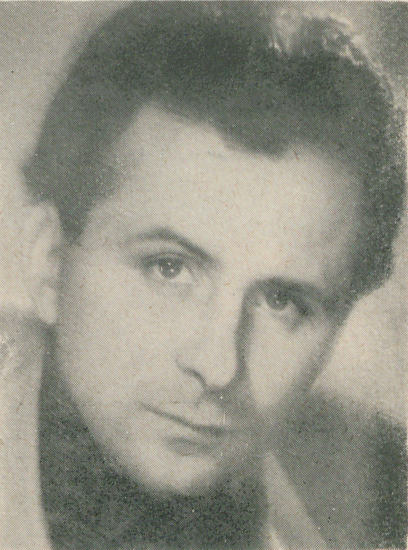
Stefan Wenta was born in 1937 in Gdańsk. He worked different jobs as a child to pay for his dance lessons. That was his passion. He was the first dancer and choreographer of the Warsaw Opera.
Thanks to the scholarship awarded to him by the Ministry of Culture and Art for the most talented artists in 1957, together with Roman Polański, Zygmunt Cybulski, Bohdan Kobiela and Olga Sawicka he left for Paris. Due to numerous engagements, for instance at Salle Pleyel and a tour around Europe, Africa and Asia Stefan Wenta decided to stay in France. Later, thanks to a film shot on the basis of his own script, he went to Los Angeles where he settled. In the heart of California he created his own dance ensemble, Wenta Ballet of Los Angeles, and established a dance school that successfully operates to this day. Apart from teaching he was also a choreographer in such productions as Oscar-winning “Reds”, “Logan’s Escape” and “The Last Dance”. He often visited Poland making choreographies for the Warsaw Syrena Theatre and the Music Theatre in Gdynia.
He has been an active choreographer and teacher giving dance lessons to a group of his students six times a week at his own school, Wenta Ballet of Los Angeles.
Interview by Edi Pyrek in Los Angeles in 2011.
In the mid-1950s, I think it was in 1957 or something, the Ministry of Culture and Art gave scholarships to five best young Polish artists: Roman Polański, Zbyszek Cybulski, Bohdan Kobiela, Olga Sawicka and me. We all went to Paris. Roman and me, we stayed in the west because I was invited to give a guest performance in Paris by [ns 00:00:29] who was the most renowned dancer in the world at the time and after the performance in Salle Pleyel they offered me to perform in Paris and to give guest performances. For instance, I was asked by a prima ballerina of the French Opera to be her partner. After three months I could stay longer without using my scholarship from Poland. I mean, the western currency was in high demand in Poland at the time. And so I went on tours with this prima ballerina around France, South… North Africa, etc. I thought that after six months I’ll return to Poland but then I got another proposal. The French Theatre du Balley, who offered me to perform as Vaclav [ns 00:01:41]. It was a life-time opportunity to see the world and especially for a Pole to see… at the time a Pole couldn’t… I was the first artist from the Iron Curtain who performed in Japan or in the Philippines, etc. It lasted for a year or so. After that, in a way, all newspapers wrote about my performances, also in Poland, etc. I was respected, in Poland they almost treated me as a Pole, together with Roman Polański and with conductor Skrowaczewski, as Poles living abroad in a way. We were like the ambassadors of Polish culture abroad.
I have been a Pole, I’ve never accepted American citizenship despite that keeping my Polish citizenship was quite troublesome for me and I had a lot of problems with the visas. Every time I came back to Poland or anywhere in the world it was a moral issue for me, or a matter of ethics that when it had been really difficult in Poland I had been given a chance to see the world and live in the West, so identifying myself with Poland has been really important for me. Despite that I had been living in the West. During the Solidarity period I had had two homes, one in Paris and the other in Los Angeles, for 8 or 10 years. During the Solidarity period I abandoned all my tasks here and I went to Poland. I staged, I mean I directed and prepared choreography at the Syrena Theatre in Warsaw but mostly I worked at the Music Theatre in Gdynia, where the museum will be located. I was the author, director and choreographer of a musical titled “The Great World”. It was a themed musical but it was too soon for… Because the gist of the musical was that the terrorist took over the United Nations. At the time in Poland the idea of terrorists wasn’t understood by the audience. And it was a unique event because for the first time in history, I mean the Solidarity period, Rakowski was sitting next to Mrs Walentynowicz. I came from America to… It wasn’t such a big risk for both of them at the time. The only thing I can say is that despite I was living abroad I’ve never stopped being a Pole and I’ve created always thinking of Poland.
Emigration is something normal, it doesn’t… When it comes to emigration it’s not… I’m not an emigrant. I believe that since I left Poland I’ve become a more refined Pole. It means that I’m more aware of my Polishness and I am… I’m from the Kashubia. My father was from Gdańsk and my mother was Kashubian.
Poland is my gist. For me it’s… Poland. It’s hard to define it in just one sentence. When I hear Chopin’s music in its every note I feel…my identity, my whole identity is… it goes through a Polish filter despite I speak terrible Polish now and you know, I couldn’t… This is why I’ve never given up my citizenship because without it that wouldn’t be me anymore.



